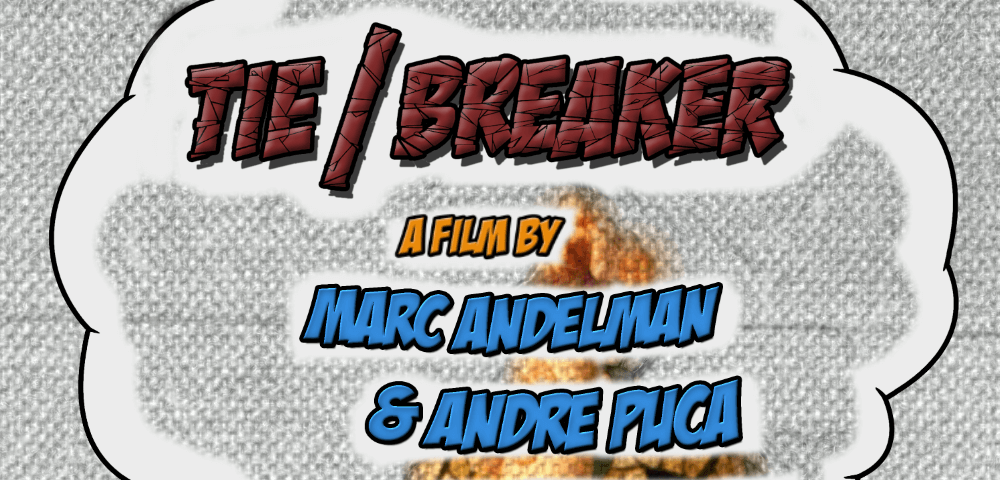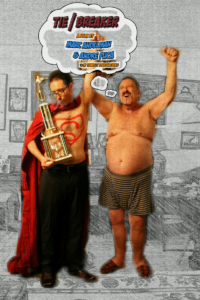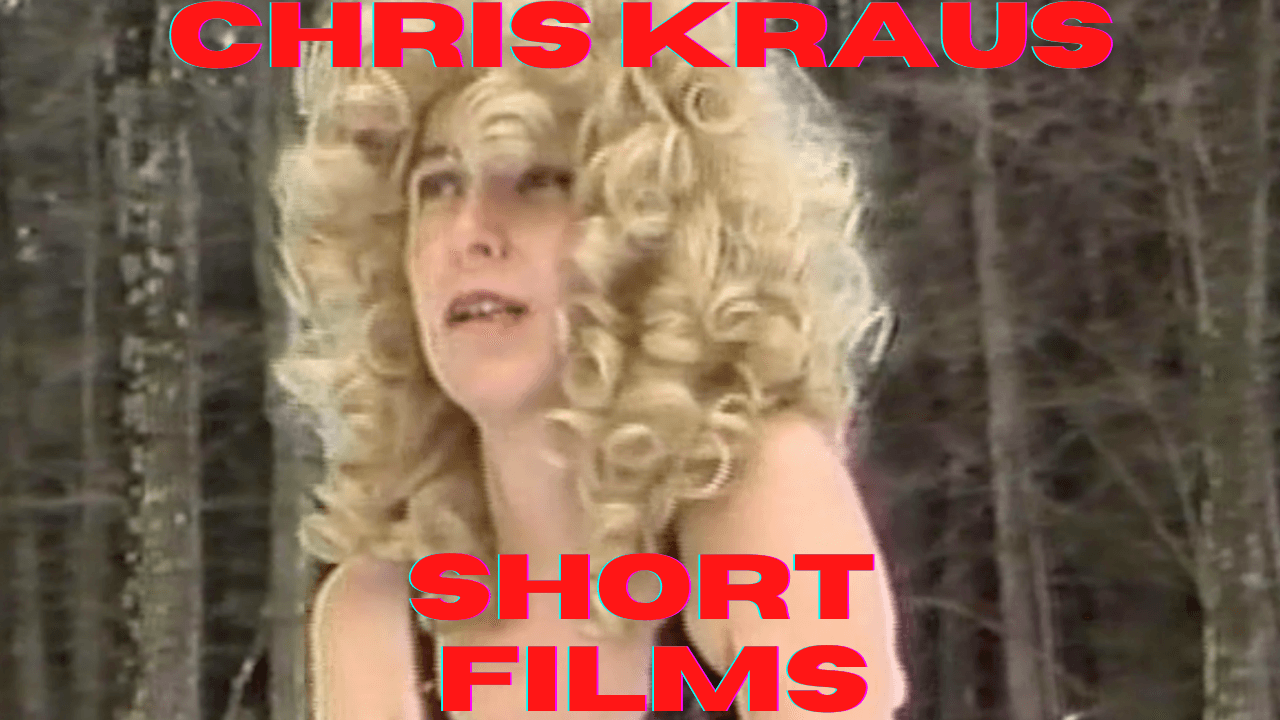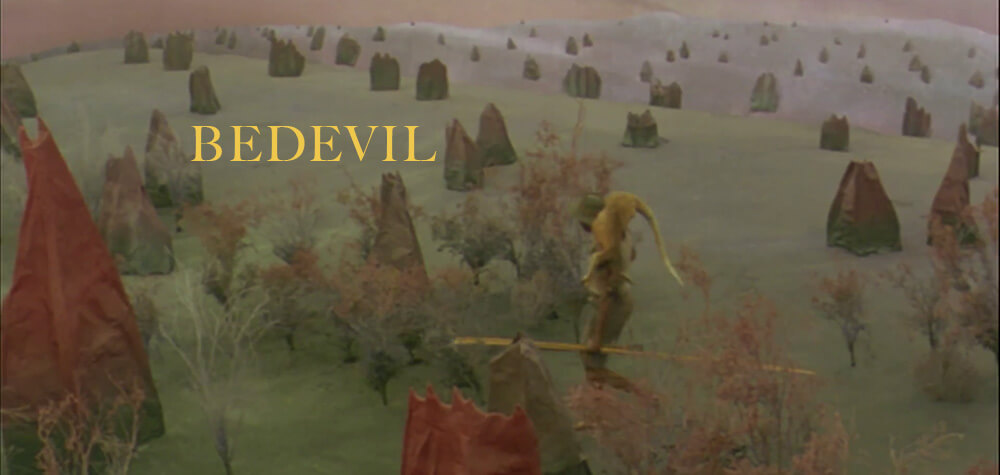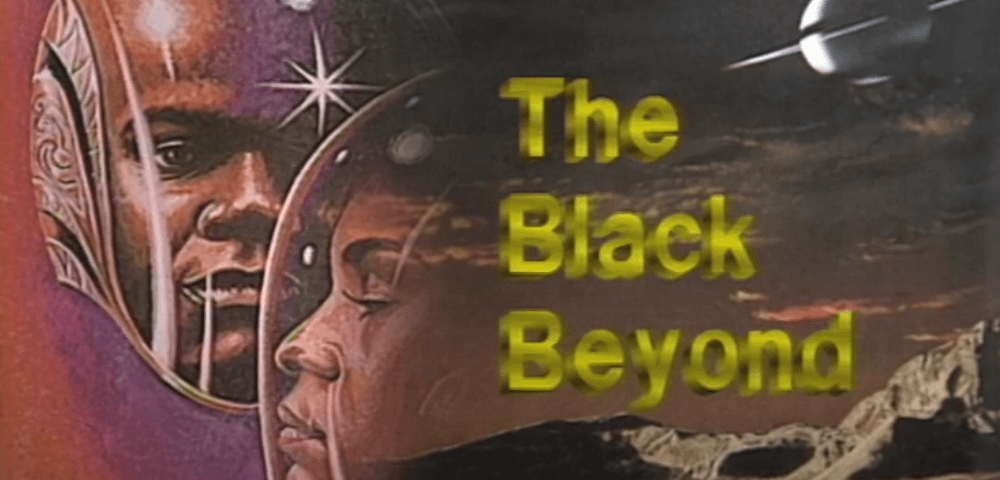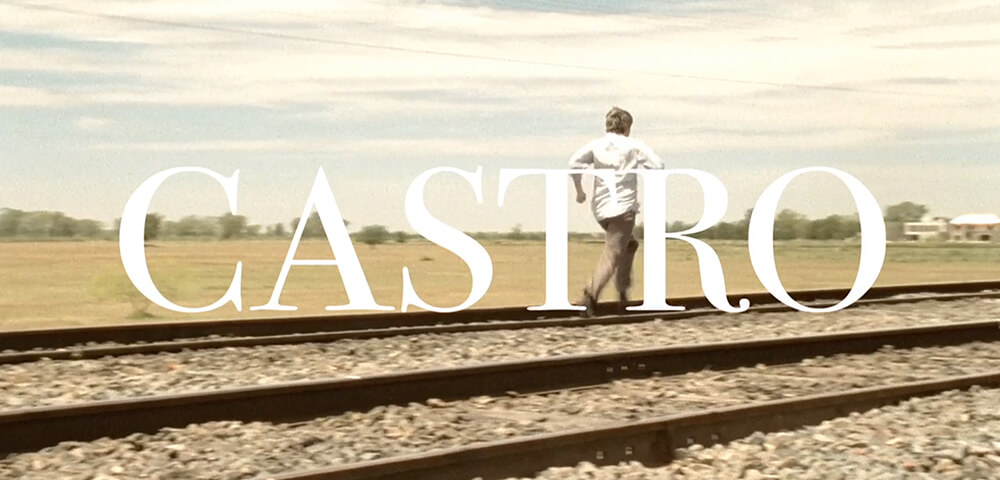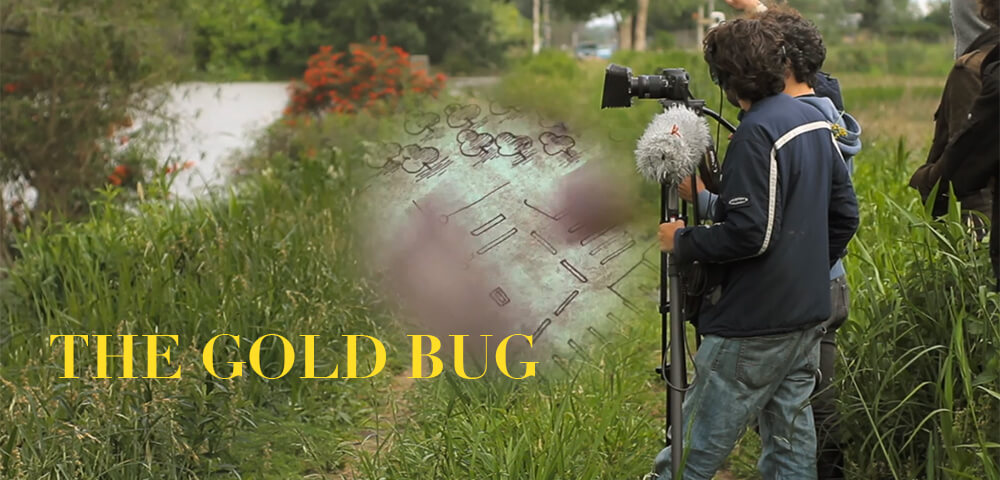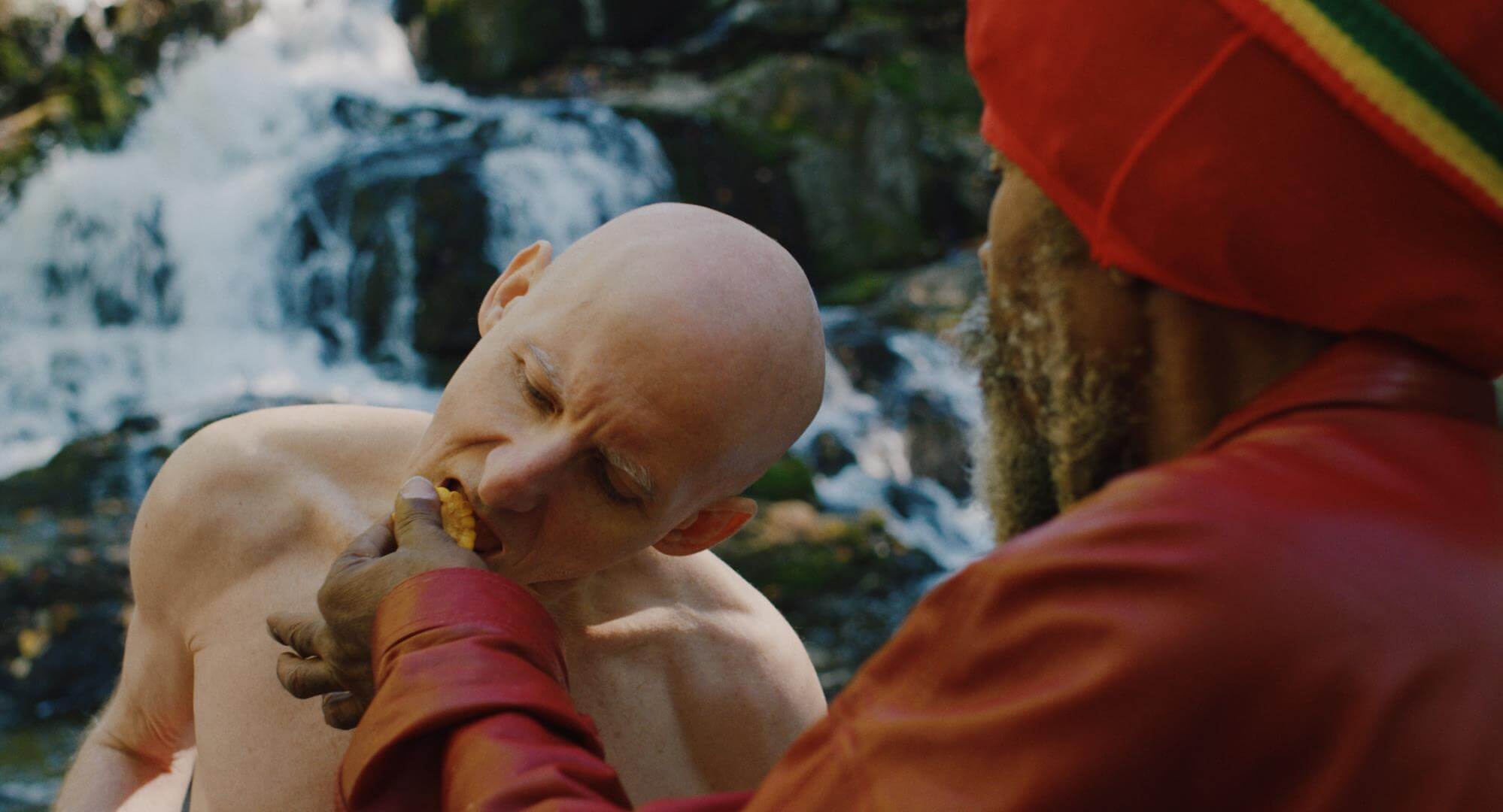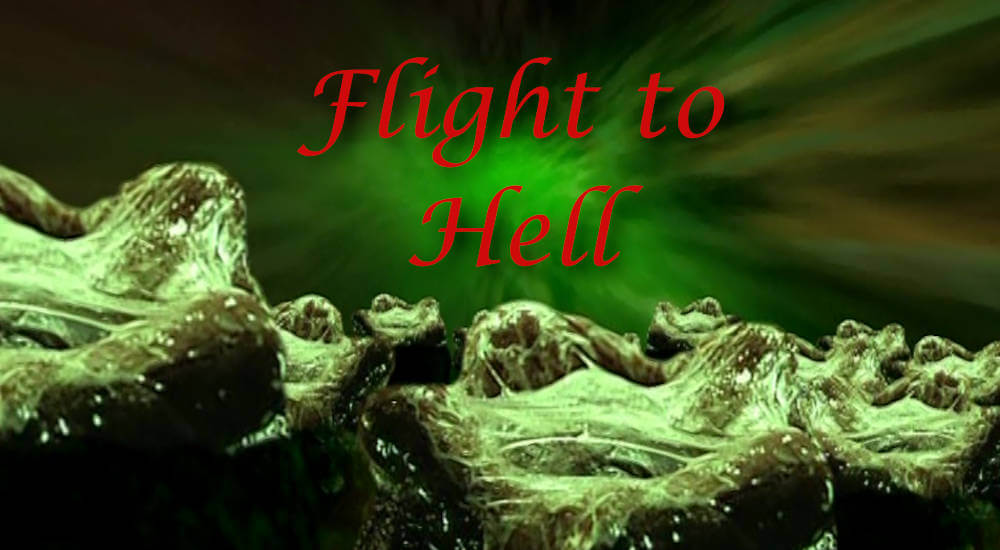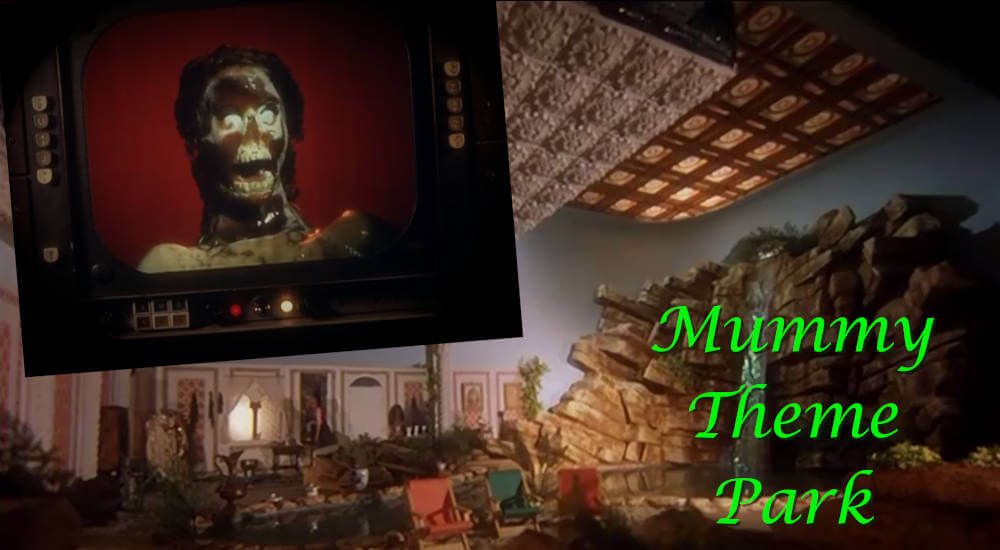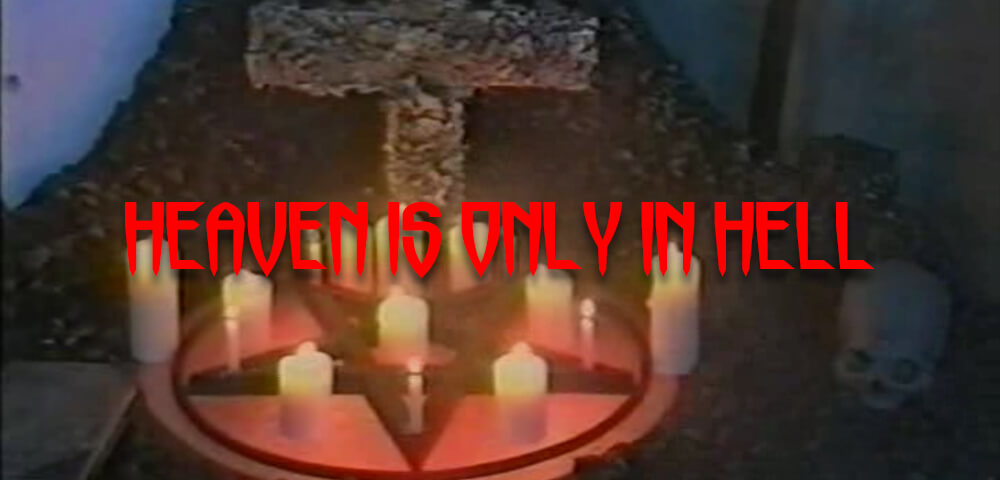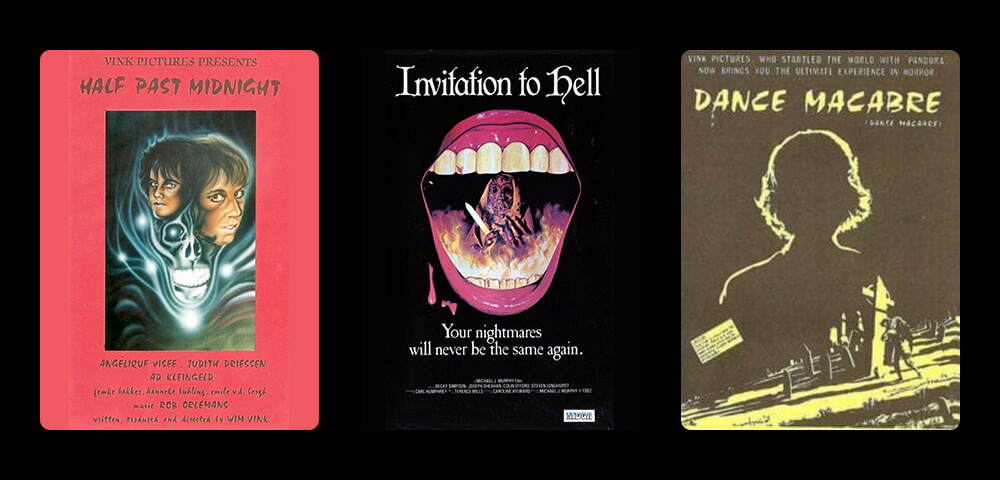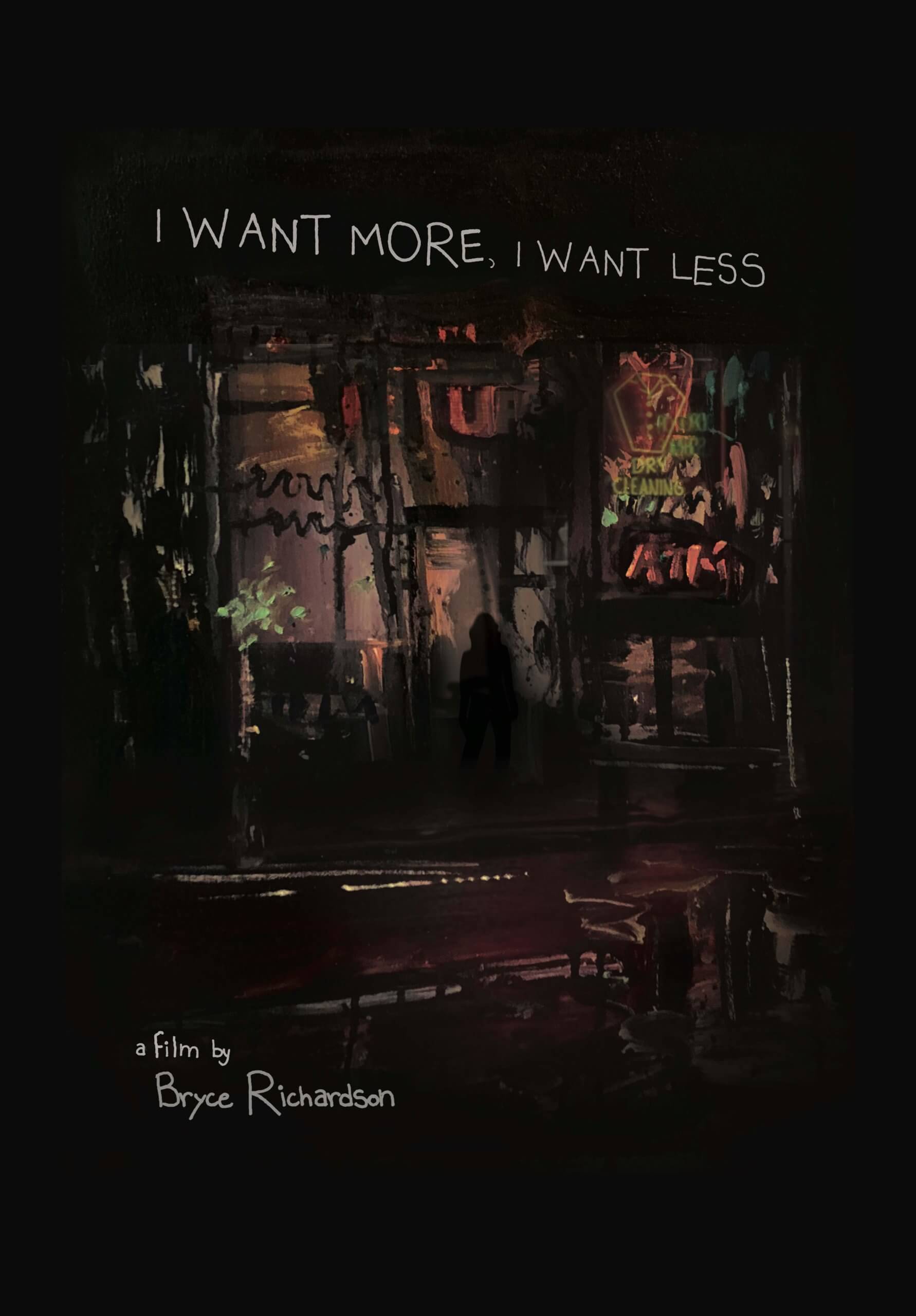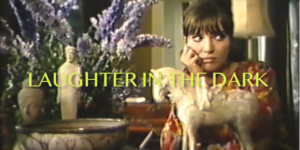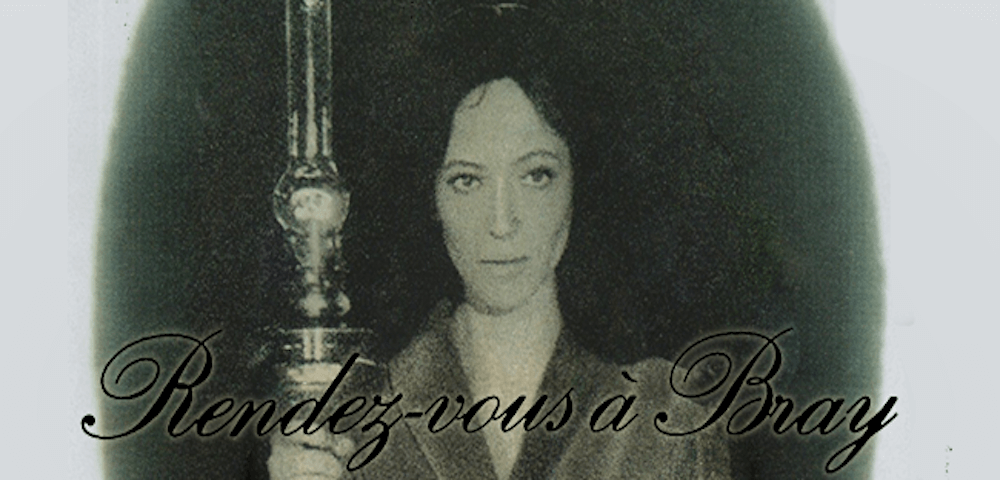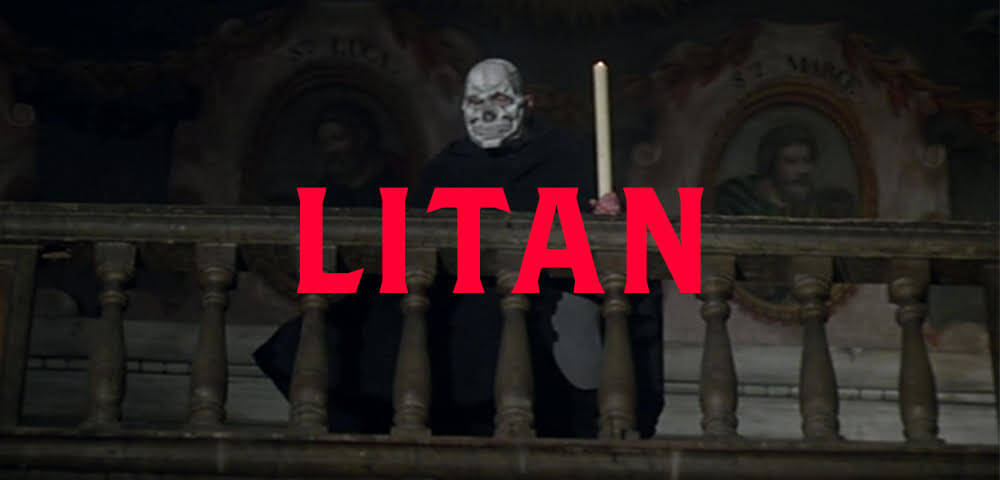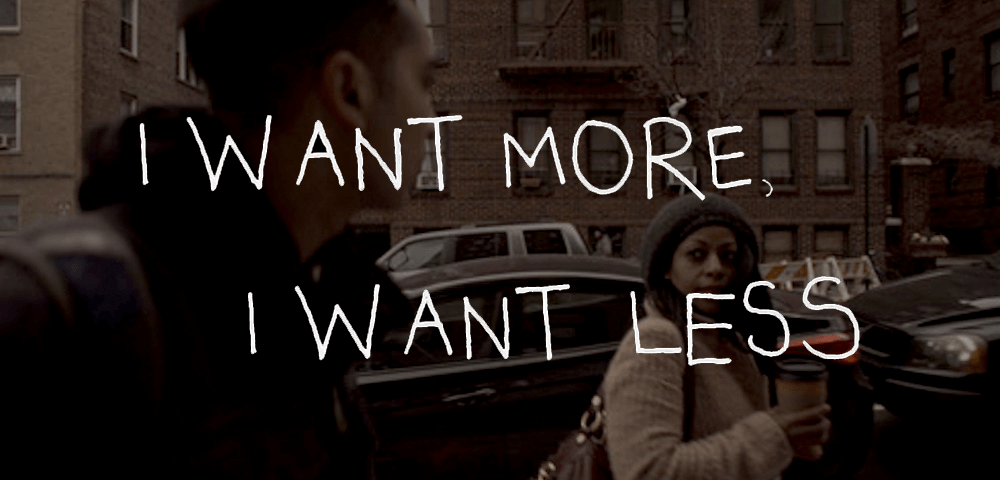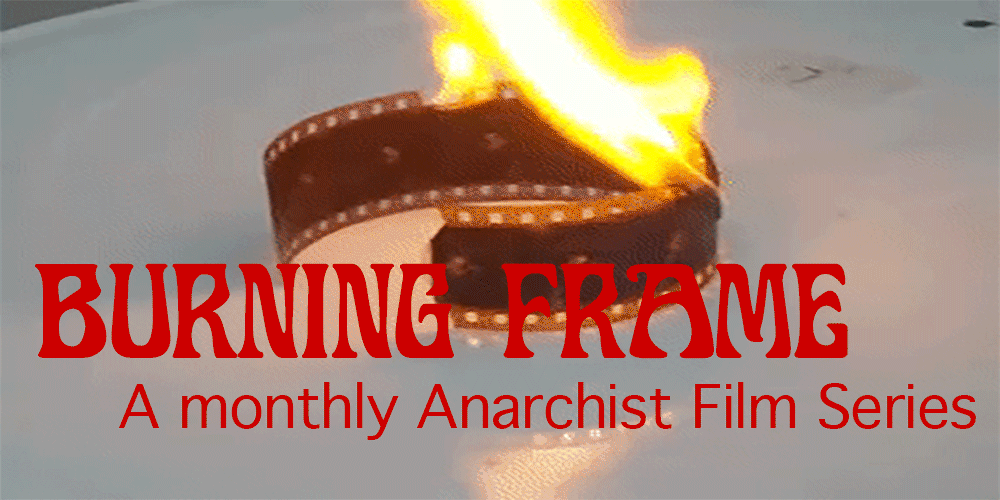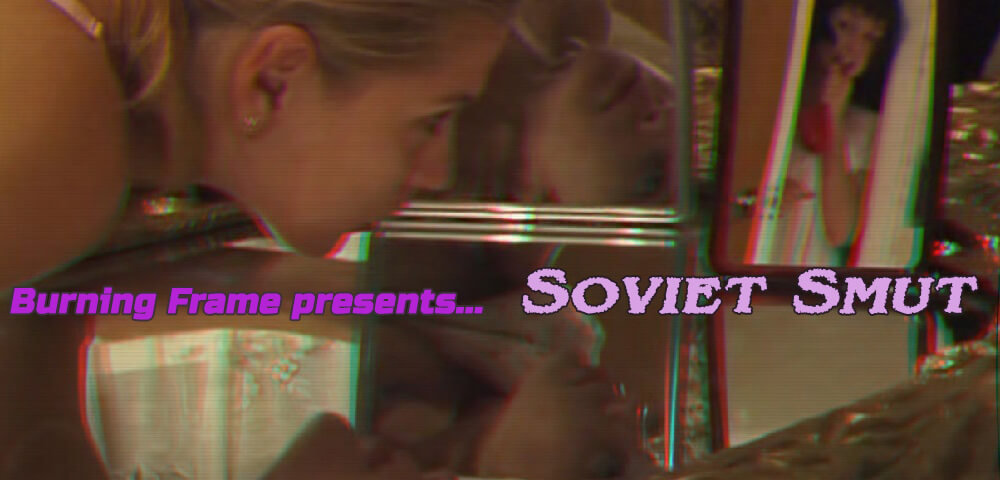The ‘plot’ quickly devolves into a Boschian nightmare, drifting between a mad scientist and a bumbling police chief, among others, but plot is not really the point here, spinning ever further into a foggy dreamworld. Part art-house fever dream, part giallo, and yet entirely its own thing,
Litan is as darkly comedic as it is unsettling and grotesque.
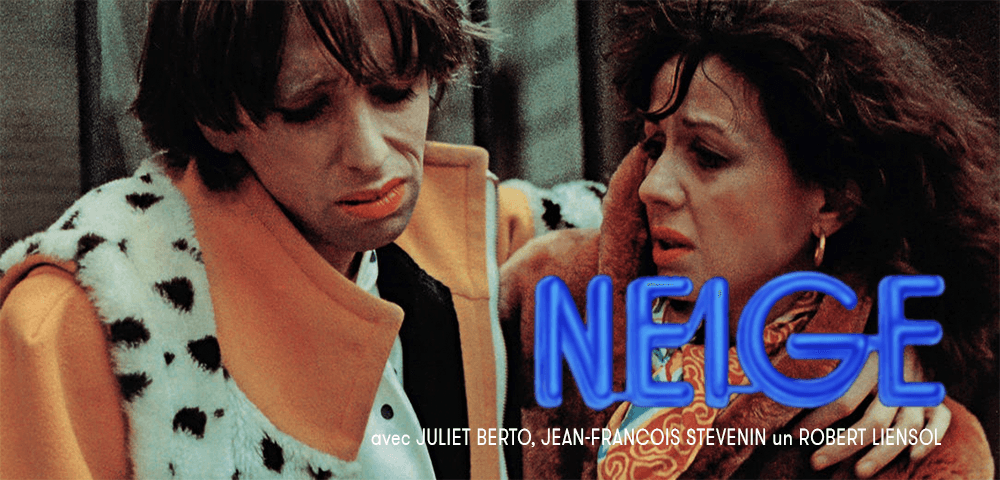
NEIGE
(SNOW)
dirs. Juliet Berto & Jean-Henri Roger, 1981
91 mins. France.
In French with English subtitles.
THURSDAY, JANUARY 6 – 7:30 PM
SATURDAY, JANUARY 15 – 10 PM
GET YOUR TICKETS!
Set during the annual Christmas fair in Paris’ Quartier Pigalle, NEIGE stars French New Wave icon Juliet Berto (LA CHINOISE, CELINE AND JULIE GO BOATING) as a hippie barmaid named Anita who looks after a loose network of bohemian down-and-outers: drag queens, homeless youths and wannabe tough guys. After the murder of a teenage drug dealer named Bobby, Anita becomes attached to a bereaved customer of his, going through the hell of withdrawal – and an underworld odyssey ensues. Featuring Robert Liensol (star of Med Hondo’s SOLEIL O) and codirected with Jean-Henri Roger (who had been a member of the Dziga Vertov Group), Berto’s bitterly humanist directorial debut shared the Contemporary Cinema Prize at the 1981 Cannes Film Festival.
“Indebted to the boilerplate romans de gare that are ubiquitous in France, NEIGE commingles danger with low-rent spectacle, never pretending to tamp down the carnival atmosphere of the drag where the vast majority of action unfolds. NEIGE is rife with details that would be absent from a more commercial-minded film: decrepit merry-go-rounds, smeared lipstick, a flickering neon windmill outside the Moulin Rouge, tea gone cold. It’s tempting to posit NEIGE as a hidden bridge between the Nouvelle Vague and the subsequent generation’s cinema du look: drunken street poetry shot through pop realism.” – Daryl J. Williams, Cinema Scope
“Berto and Roger were grunge before grunge.” – Dave Kehr, Curator, Museum of Modern Art
Special thanks to Jane Roger, JHR Films, Rialto Pictures and Adrienne Halpern (Studio Canal).

PANELSTORY
dir. Věra Chytilová, 1979.
Czechoslovakia. 100 min.
In Czech with English subtitles.
FRIDAY, JANUARY 7 – 7:30 PM
FRIDAY, JANUARY 28 – 10 PM
GET YOUR TICKETS!
Věra Chytilová’s 1966 DAISIES may be her best known work of radical cinema, but it’s neither her last, nor arguably most significant. A decade later, at time when most of her Prague Spring contemporaries had fled Czechoslovakia or drastically reigned in once-experimental visions, she came back with the equally daring and essential PANELSTORY. Framed as a sort of ensemble comedy circulating among the many lives contained within a new Soviet-bloc housing complex, the film is actually a scathing satire shredding every available ideal of home and family. The whole film can be understood by its audaciously critical setting: lost in a wasteland of debris and stalled construction, still incomplete yet already falling into disrepair, riddled with half-functional elevators, the housing complex precisely mirrors the disintegrating families contained within, whose individual stories form a catalogue of bleakly hilarious dysfunction and despair. It might have been all too believably familiar to those living under similar conditions in Czechoslovakia at the time, but Chytilova’s disillusionment, as always, extends far beyond her immediate surroundings to call into question the thwarted utopian hopes of an entire industrialized world.
As with all of Chytilová’s best work, form here deftly follows function. The urban malaise is caught near-entirely in verité-style hand-held camerawork decades ahead of fashion, and rhythmically fragmented under anarchic editing that mixes apartment interiors with dystopian architecture and massive earth-moving operations. Even the sound design follows suit, as the characters are beset by cataclysmic atonal score (contrasted against a synth-funk interlude straight out of an aspirational 70s home furnishings showroom). What PANELSTORY may lack from the sheer stylistic invention of DAISIES, it makes up for in thematic cohesion.
After the collapse of the Prague Spring, Chytilová was among those directors cut out of the studio system for their brilliant excesses, which meant that she spent the years from 1970 to 1976 secretly directing commercials under the name of her husband (Jaroslav Kučera, her frequent cinematographer and collaborator). Pressures from international film festivals and a bold letter from directly to the president restating her sincere Socialist values allowed Chytilová to release THE APPLE GAME in 1976. But if that work seemed comparatively restrained, she pulled out all the stops for PANELSTORY. It’s unbelievable that such a film could have been produced under the noses of the state censors, and following its release, Chytilova found herself banned for another two years for her troubles. Seeing it again all these years later, PANELSTORY seems well worth the risks of getting it made.
Having considered PANELSTORY our “lodestar film” since opening in 2010, Spectacle is thrilled to host this one-night-only engagement of Chytilová’s unsung classic as part of our reopening festivities.
Special thanks to Troy Swain and Janus Films.
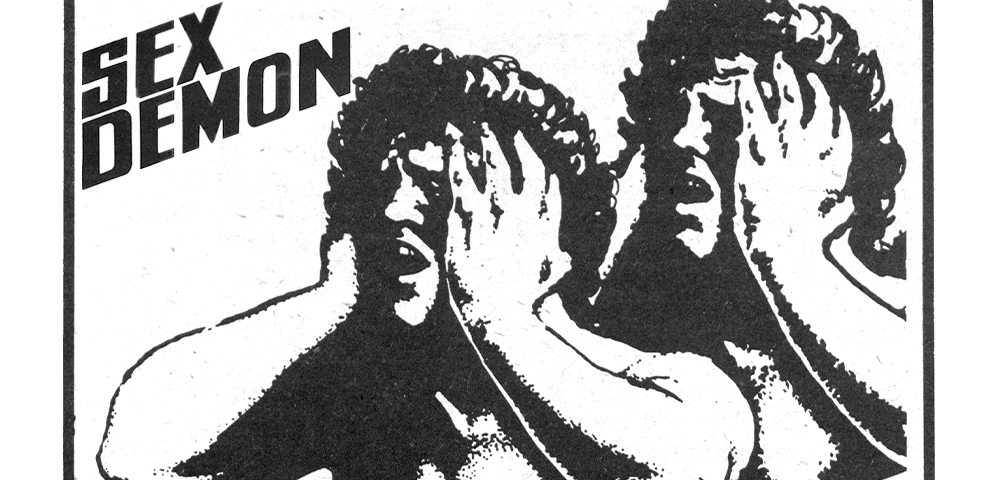
SEX DEMON
dir. J.C. Cricket, 1975
USA. 60 min.
SATURDAY, JANUARY 8 – MIDNIGHT
FRIDAY, JANUARY 14 – 10 PM
GET YOUR TICKETS!
SEX DEMON (dir. J.C. Cricket, 1975) from Spectacle on Vimeo.
“A non-stop shocker that both sizzles and chills. A totally daring new dimension in male erotica!” – Michael’s Thing
All hell breaks loose when John’s last-minute anniversary gift inadvertently causes his younger lover Jim to become possessed by a SEX DEMON in J.C. Cricket’s all-male horror film. Openly inspired by both The Exorcist and its Blaxploitation cousin, Abby, SEX DEMON is a ferocious mix of the erotic and the grotesque that’s primed and ready to shock audiences again after being lost for the past forty years. In the words of Gay Scene critic Bruce King, “the squeamish may not want to watch, but if you do, you won’t forget it!”
SEX DEMON was the first film effort by actor, erotic dancer, and gay television pioneer J.C. Cricket. After the release of this film, he’d go on to direct over a dozen more under various pseudonyms before cofounding and directing the gay public-access programs Christopher Street After Dark, Diversions, Connections, and Gay Morning America. Cricket passed away from AIDS-related complications in 1992.
Last screened theatrically in 1981 and never given a home video release, SEX DEMON is a crucial — yet long-lost — piece of queer horror history. Presented in a new 2k preservation from a recently discovered 16mm theatrical print.
Elizabeth Purchell is a queer film historian and archivist. Her Instagram project, Ask Any Buddy, explores the gay adult film industry’s role in both the development of queer cinema and the spread of gay culture at large.
CONTENT WARNING: This film contains a scene of sexual violence.
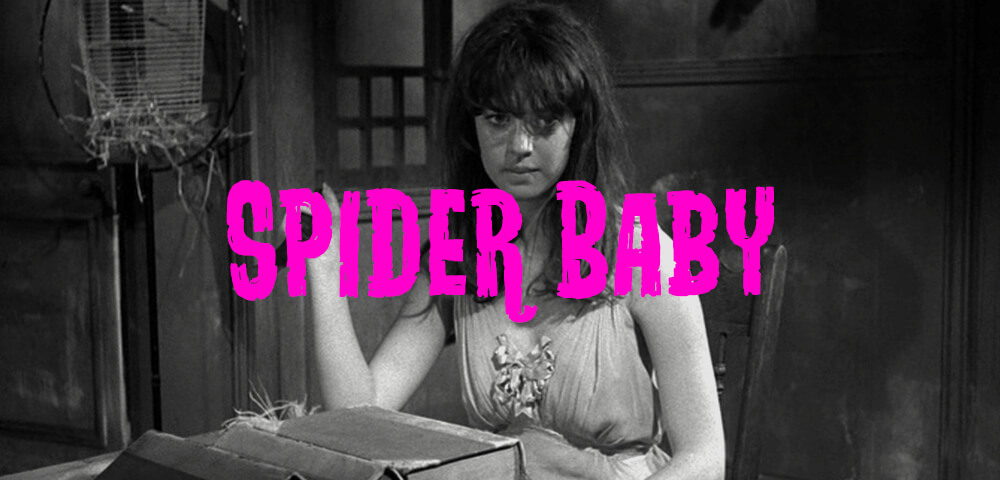
SPIDER BABY
dir. Jack Hill, 1967
81 mins. United States.
In English.
SUNDAY, JANUARY 9 – 7:30 PM
FRIDAY, JANUARY 14 – MIDNIGHT
GET YOUR TICKETS!
“Though superficially similar to some of Charles Addams’ drawings, SPIDER BABY truly resembles nothing else in film.” – Nathaniel Thompson, Mondo Digital
The first solo feature from exploitation legend Jack Hill (FOXY BROWN), SPIDER BABY remains one of the wildest and weirdest horror films of the 1960s. The credits dub this “the maddest story ever told,” a promise that’s well on the way to being fulfilled in the opening scene alone, when Virginia traps and kills a hapless deliveryman in her makeshift web. She’s one of three siblings, including exploitation wild man Sid Haig, who suffer from a unique genetic disorder that causes them to regress back to childhood while retaining the physical strength and sexual maturity of adults. Lon Chaney, Jr. (THE WOLF MAN) gives one of his most memorable late performances as Bruno, who manages to cover up the crimes of the “kids” until two distant relatives lay claim to their house. Blending elements of gothic horror and gallows humor, SPIDER BABY drops somewhere between THE ADDAMS FAMILY and THE TEXAS CHAINSAW MASSACRE.
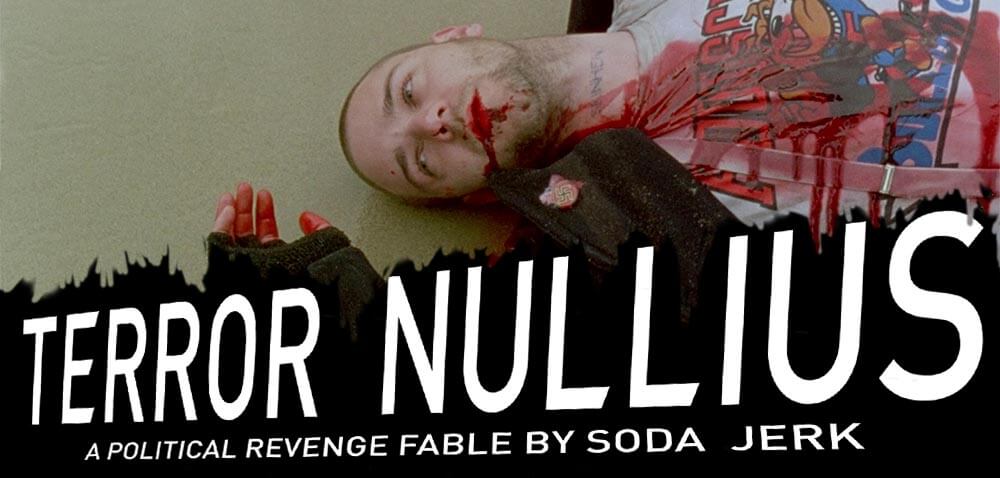
TERROR NULLIUS
dir. Soda_Jerk, 2018
53 mins. Australia
In English.
SATURDAY, JANUARY 8 – 10 PM
SATURDAY, JANUARY 22 – 5 PM
THURSDAY, JANUARY 27 – 7:30 PM
GET YOUR TICKETS!
Part political satire, eco-horror and road movie, TERROR NULLIUS is a political revenge fable constructed entirely from samples pirated from the Australian cinema cannon. Binding together a documentary impulse with speculative muckraking, Soda Jerk’s revisionist history opens a queer narrative space where cinema fictions and historical facts permeate each other in new ways. The apocalyptic desert camps of Mad Max 2 become the site of refugee detention, flesh-eating sheep are recast as anti-colonial insurgents and the women of Australian cinema go vigilante on Mel Gibson. Working within and against the official archive, Soda Jerk’s feature remix offers an incendiary un-writing of Australian national mythologies.
Funded by the Ian Potter Moving Image Commission in 2016, TERROR NULLIUS was notoriously disowned by the organisation just days prior to the film’s premiere in 2018. Offended by its politics, the Ian Potter’s conservative Board of Trustees described the work as “a very controversial piece of art” and “unAustralian”. The Guardian named the “dizzyingly ambitious satirical work” one of the best Australian films of the decade.
TERROR NULLIUS was commissioned by ACMI (Australian Centre for the Moving Image)
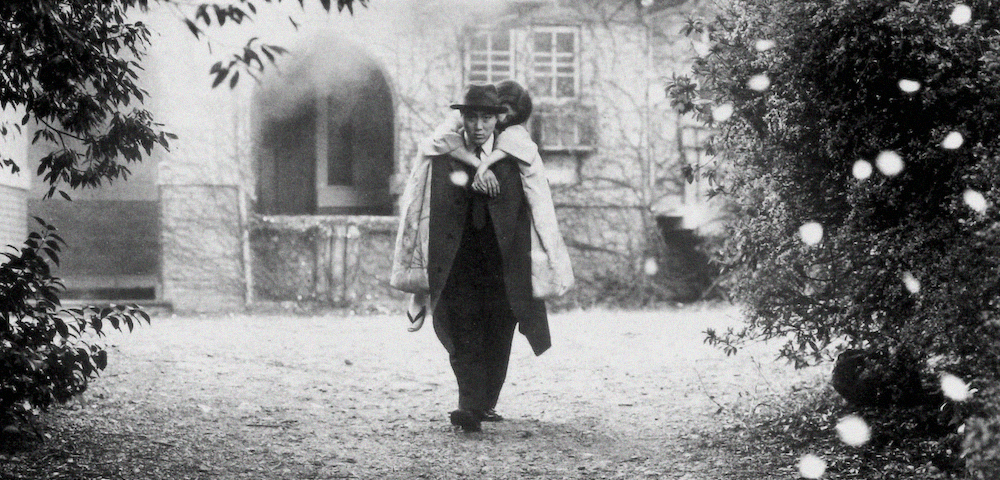
TO SLEEP SO AS TO DREAM
(夢みるように眠りたい」フィルム修復)
dir. Hayashi Kaizô, 1986
73 mins. Japan.
Silent.
SATURDAY, JANUARY 15 – 5 PM
THURSDAY, JANUARY 20 – 10 PM
SUNDAY, JANUARY 30 – 7:30 PM
GET YOUR TICKETS!
For those who remember Hayashi Kaizô’s MAIKU HAMA: #1 PRIVATE EYE trilogy we screened in 2018, a reprise of one of our favorites from this summer’s outdoor screenings in a gorgeous 2k restoration.
Born from the vestiges of some long forgotten dream, TO SLEEP SO AS TO DREAM is a hauntingly beautiful ode to the silent era that yearns for a distant past—back to an illusory world teeming with new excitements, novel invention and cryptic riddles. Under the faint glimmer of an electric lamp, an aging silver-screen starlet seeks the aid of two steadfast detectives when her darling daughter, the ethereal Bellflower, is kidnapped for ransom. The sleuths find themselves caught in a heady game of cat and mouse as they journey deeper into a sleepless realm of benshi performers, archetypal villainy and never-ending serials. Transposing the silent era’s cinematic language into a work that walks the line between antiquity and fantasy, dream and waking state, TO SLEEP SO AS TO DREAM casts a spell over the spectator in dream-like fashion, harking back to the magical, early days of cinema.
Special thanks to K.F. Watanabe, Tetsuki Ijichi and Arrow Films.
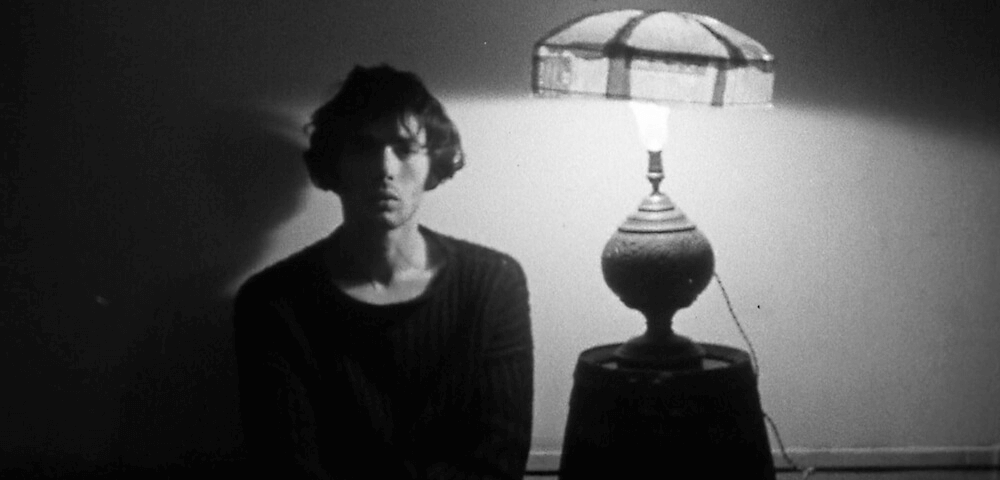
WHEEL OF ASHES
dir. Peter Emanuel Goldman, 1968
95 mins. France.
In French with English subtitles.
SUNDAY, JANUARY 23 – 7:30 PM
ONE NIGHT ONLY!
GET YOUR TICKETS!
“Every morning i ask myself, how was i going to live?”
“I am nothing but passion and sex and pathetically chaotic poetry”
Photographed with a distinctive lyrical purity and funded in part with a grant awarded by Jean-Luc Godard, WHEEL OF ASHES serves as a gut-wrenching portrait of the tormented and solitary.
Pierre Clementi – then between starring roles for Buñuel and Pasolini – wanders aimlessly through the temptations of Saint-Germain-des-Prés as he attempts to relinquish himself from the corrupted urges of lust and desire and search for meaning through the teachings of Eastern and Western mysticism. Pierre’s tortured eyes reflect directly into Goldman’s lens, fully encapsulating Goldman’s visceral style as an instinctive and intuitive formalist of beauty. This is poetry as filmmaking and filmmaking as poetry.
Sleepwalking through beatnik cafes and underground nightclubs, Pierre is determined to walk until he has nowhere else to go. Rarely screened and often neglected, WHEELS OF ASHES was Goldman’s last completed narrative feature and is ripe for rediscovery.
screening with
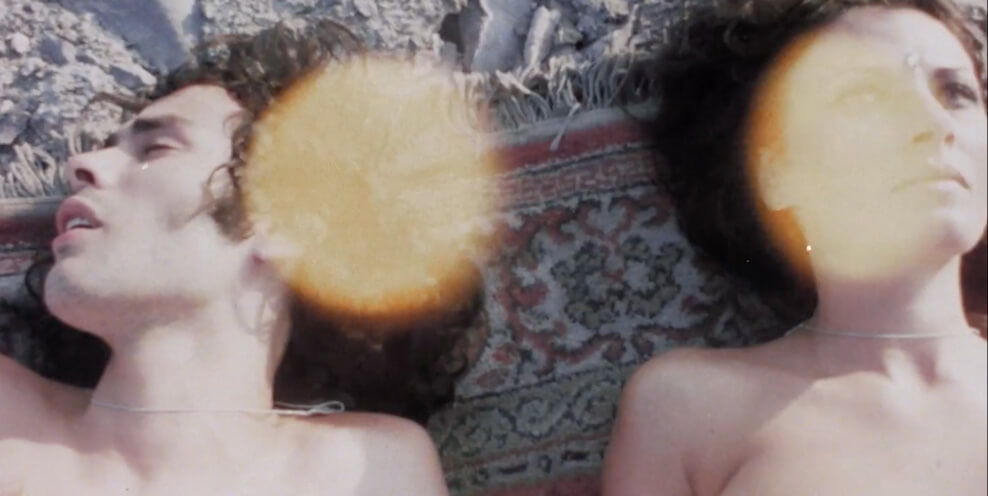
POSITANO
dir. Pierre Clementi, 1968
25 mins. France.
Silent.
“The reconciliation of the visual with the colorful psychedelic impulses of these luscious times… To find again the chant of origins, images that inscribe themselves in us like a double and that wave to us. To grope for… In the dark room of multinational ideas, I quiver and I mumble.” — Pierre Clémenti
Featuring some of the most beautiful double/triple/etc exposures ever committed to film, POSITANO features Pierre Clementi’s family and friends (including Nico & Philippe Garrel) on their holiday trip in Italy. The footage is silent, colorful and seductive.
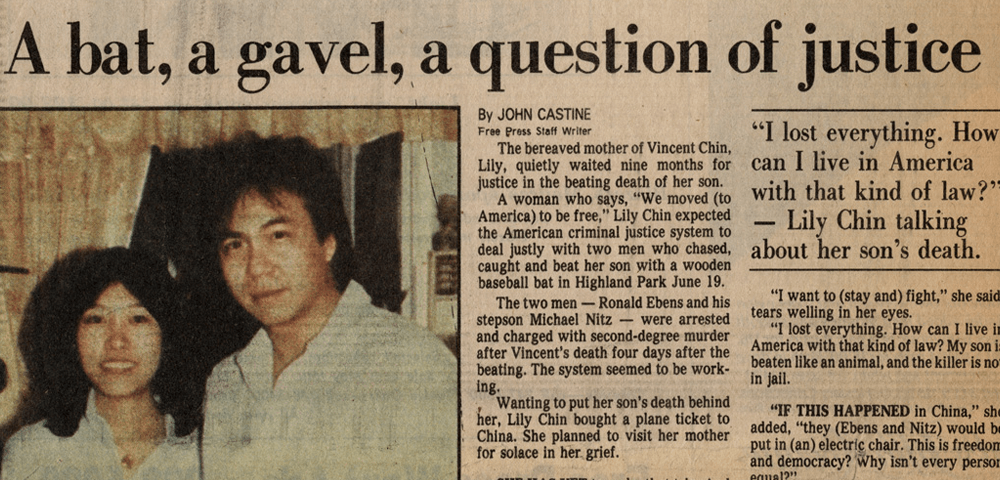
WHO KILLED VINCENT CHIN?
dir. Christine Choy, 1987
87 mins. United States.
In English
FRIDAY, JANUARY 28TH – 7:30 PM + Q&A WITH DIRECTOR CHRISTINE CHOY (this event is $10)
GET YOUR TICKETS!
On a hot summer night in Detroit, Ronald Ebens, an autoworker, killed a young Chinese-American engineer with a baseball bat. Although he confessed, he never spent a day in jail. This gripping Academy Award-nominated film relentlessly probes the implications of the murder in the streets of Detroit, for the families of those involved, and for the American justice system.
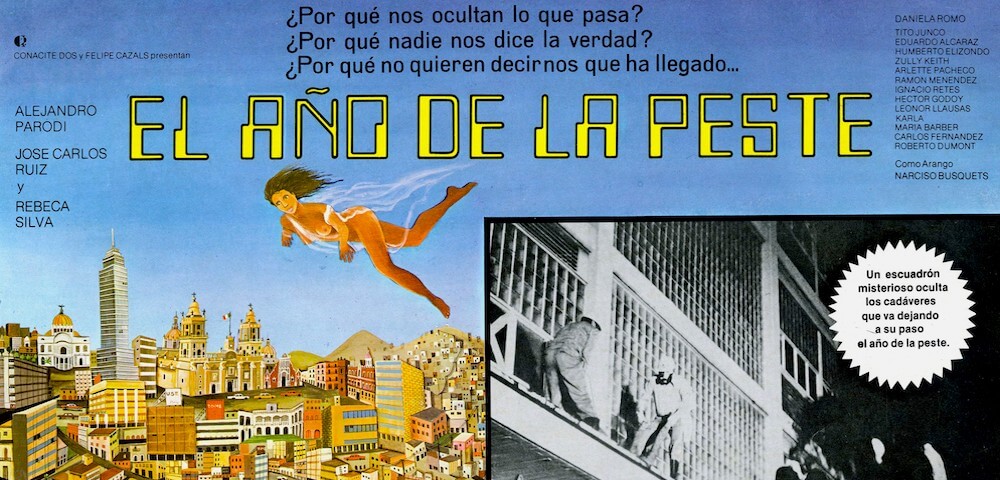
THE YEAR OF THE PLAGUE
(EL ANO DE LA PESTE)
dir. Felipe Cazals, 1979
109 mins. Mexico.
In Spanish with English subtitles.
FRIDAY, JANUARY 7 – 10 PM
ONE NIGHT ONLY!
GET YOUR TICKETS!
Ten years after we showed his anti-anti-communism horror masterpiece CANOA, Spectacle is thrilled to reprise living master Felipe Cazals’ THE YEAR OF THE PLAGUE: a little-seen adaptation of Daniel Defoe’s A Journal of the Plague Year transposed to 1970s Mexico. Working from an original idea proposed by his friend Gabriel Garcia Marquez, Cazals uses the outbreak of a pandemic to diagnose the ills of Mexican society as he saw it: political corruption, snake-oil pundits on television, municipal apathy to the basic needs of lower-income citizens. The result is a bracing, terrifying vision of life out of junct 40 years ahead of coronavirus.
“Gabo (Marquez) is known as the creator of magical realism, but there is no magic to this film. We inserted a plague to create a different reality, in order to reveal problems within society. What can change is the way authorities will react to a crisis of this nature. To hide the truth is a power move, essentially linking all forms of power together. The president must say whatever is convenient for private interests. The whole reason he is in power is to create a distorted reality. The president, the private interests—their form of reality becomes the official truth. To take the pandemic seriously would necessitate destroying preexisting forms of power.” – Felipe Cazals, Filmmaker Magazine
Special thanks to Felipe Cazals, Herandy Goytia and IMCINE.
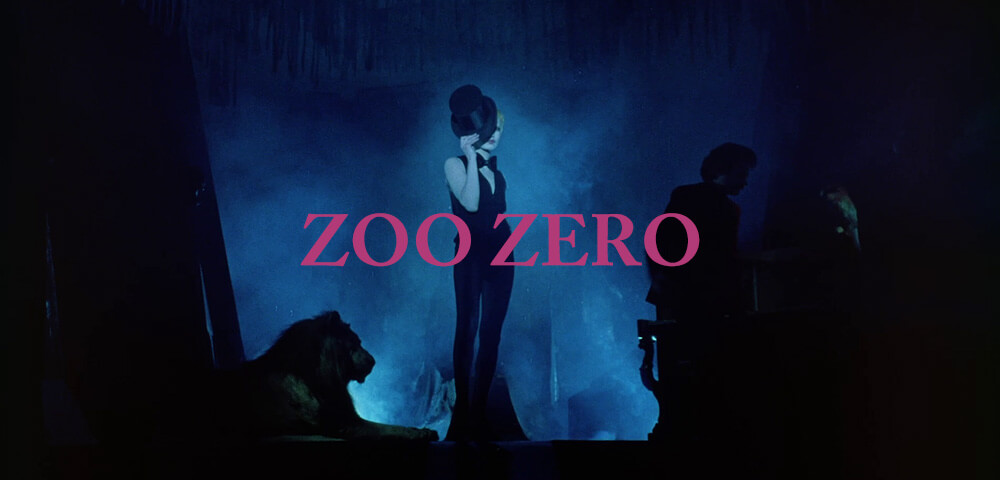
ZOO ZÉRO
dir. Alain Fleischer, 1978
France. 96 min.
In French with English subtitles.
SATURDAY, JANUARY 15 – 7:30 PM
FRIDAY, JANUARY 21 – 10 PM
SUNDAY, JANUARY 30 – 5 PM
GET YOUR TICKETS!
ZOO ZÉRO (Alain Fleischer, 1978) from Spectacle on Vimeo.
During a cataclysmic rainstorm in a Paris largely reduced to ruins and rubble, guests in baroque animal masks crowd a smokey nightclub called Noah’s Ark. Here, Eva (Eden and After’s Catherine Jourdan) takes the stage to perform a riviting song of illicit interspecies desire and a formative erotic experience involving a lion mauling at the Berlin Zoo. It’s the last number, of the night, and maybe of the city — “an accident or a disease” has ravaged the streets as trucks trundle over cobblestones with news of the military government in crisis and the animal world seems poised to reclaim lost ground from a waning humanity. But an encounter with a stranger at the club (a tuxedoed, stammering Pierre Clementi) sends Eva out into this city of crumbling bordellos and verdant parks to a series of fateful meetings with a fragmentary family — a mother ogre, a ventriloquist chauffeur who narrates the failure of the Spanish revolution with a Donald Duck puppet, twin foley artists, and, narrating from a vocoder organ at the heart the liminal human-animal space of the city zoo, a mournful Klaus Kinski. But like other pulp peaks of the 70s, this is less a film that suggests tidy synopsis than a true cinematic dream, where nocturnal correspondences between Mozart, escaped large cats, and the grasping of all-too-temporary human edifices override the logic of the waking world and categories become blurred by their own mysterious logic.
Exquisitely shot in oneirically shadowed day-for-night (and night-for-night) by Bruno Nuytten (of such Spectacle essentials as INDIA SONG, MON COEUR EST ROUGE, and POSSESSION!), and with assistant direction by Claire Denis, ZOO ZÉRO has been all but unseeable outside of messy bootleg transfers for far too long. Now, at last, artist and director Alain Fleischer’s masterpiece has been newly restored from 35mm, in a gorgeous HD transfer.
Newly restored HD print courtesy of Alain Fleischer, with English subtitles newly corrected and custom retimed by Spectacle volunteers.
